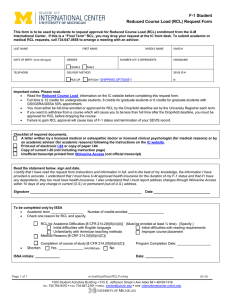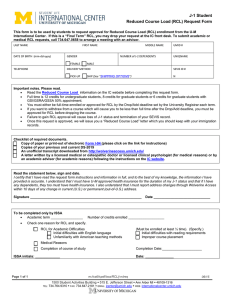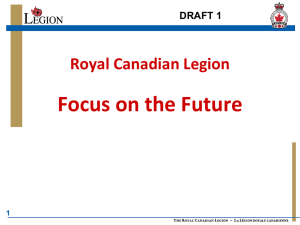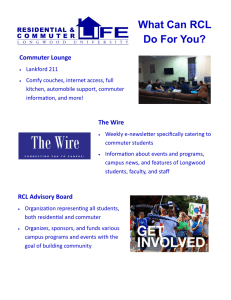Additional RCL Sustainability Goals
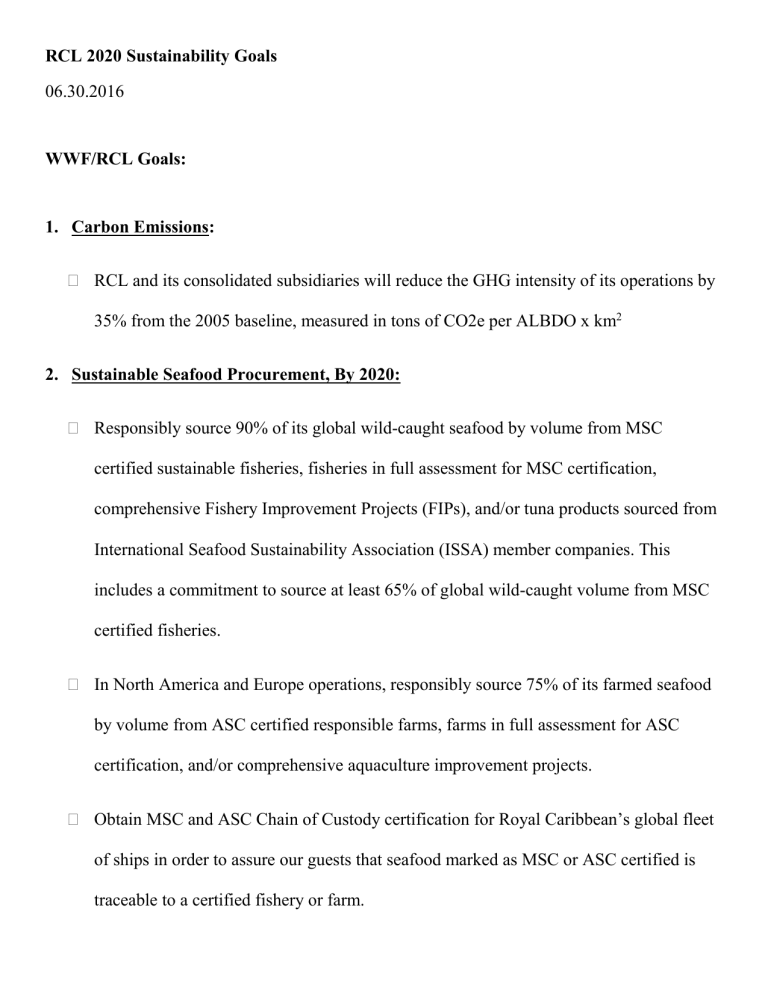
RCL 2020 Sustainability Goals
06.30.2016
WWF/RCL Goals:
1.
Carbon Emissions:
RCL and its consolidated subsidiaries will reduce the GHG intensity of its operations by
35% from the 2005 baseline, measured in tons of CO2e per ALBDO x km 2
2.
Sustainable Seafood Procurement, By 2020:
Responsibly source 90% of its global wild-caught seafood by volume from MSC certified sustainable fisheries, fisheries in full assessment for MSC certification, comprehensive Fishery Improvement Projects (FIPs), and/or tuna products sourced from
International Seafood Sustainability Association (ISSA) member companies. This includes a commitment to source at least 65% of global wild-caught volume from MSC certified fisheries.
In North America and Europe operations, responsibly source 75% of its farmed seafood by volume from ASC certified responsible farms, farms in full assessment for ASC certification, and/or comprehensive aquaculture improvement projects.
Obtain MSC and ASC Chain of Custody certification for Royal Caribbean’s global fleet of ships in order to assure our guests that seafood marked as MSC or ASC certified is traceable to a certified fishery or farm.
Eliminate the procurement of highly vulnerable species identified by WWF utilizing
IUCN and CITES rankings. In addition, develop clear policy language that notes that shark fin is banned from RCL procurement in all operations.
Publically adopt the “WWF Traceability Principles for Wild-Caught Fish Products”
3.
Key Commodity Procurement:
Working with WWF, RCL is conducting an analysis of key food commodity categories
(meat, dairy, oils, vegetables, fresh fruits, sugar, grains, tea and coffee) to identify and prioritize commodities with the highest environmental impact by the end of 2016.
Following the prioritization, RCL and WWF will work to develop strategies to improve sustainable sourcing practices by 2020.
4.
Global Tour Operations:
Commitments:
RCL endorses the Global Sustainable Tourism Council (GSTC) standards for sustainable tourism, and endorses
“GSTC Certified”
as the global certification framework for sustainability in tour operations and destinations.
RCL will publicly recognize current tours that are verified against a GSTC-recognized sustainability standard. In addition, RCL will indicate which tours are verified to this standard and will categorize all of these tours under “sustainable tours” so that consumers can view our range of “sustainable” offerings.
Starting in 2016,
RCL will educate key staff and tour operators on the GSTC standard and process of certification by providing information in RCL’s Operations Manual for Tour
Operators and organizing supportive trainings.
By the end of 2017,
For prospective bidders, RCL will include educational information in the RFP bid invitations regarding RCL’s commitment to the GSTC standard and to GSTC
Certified operators.
By the end of 2018,
Royal Caribbean Cruises Ltd is committed to leveraging our influence in the marketplace to conserve and protect natural and cultural resources. As a cornerstone of our responsible tour sourcing policy, RCL will give preference to tours that are
GSTC certified and to those that have made progress towards certification, when quality, price, and availability are equal.
Investigate the option to offset carbon emissions, through WWF Gold Standard projects, for RCL shore excursions.
By the end of 2019,
All “sustainable tours” offered by RCL will be provided by GSTC Certified operators, and RCL will categorize all tours by GSTC Certified operators under a sustainability designation so that consumers can search for and readily identify these options.
By the end of 2020,
RCL will increase the number of sustainable tours offered to guests by certifying
1,000 RCL tours by GSTC Certified operators. This target will be reviewed annually.
5.
Destination Stewardship:
Beginning in 2016,
RCL will support up to three WWF Ocean tourism and coastal conservation projects per year to advance ongoing conservation efforts and continue to drive sustainability within the tourism industry.
By the end of 2017,
Working with partners such as WWF and the Global Sustainable Tourism Council
(GSTC), RCL will support the implementation of GSTC’s Destination Assessment in two destinations, as well as RCL private destinations, to identify sustainability and environmental threats and develop corrective action plans in concert with destination managers and local stakeholders.
By 2018,
RCL will set a target for RCL private destinations to become GSTC Certified to the applicable GSTC standard.
WWF and RCL will continue to pursue alignment with WWF ocean conservation priorities and WWF’s Marine and Coastal Tourism Strategy.
Additional Corporate Sustainability Goals:
1.
Waste and Recycling
Establish ”Green Loading” hubs for all North American and Northern European itineraries and establish at least five “Green Loading” hubs in other key/ strategic markets.
Obtain Zero Waste certification or equivalent of our qualifying hubs.
Continue to reduce our waste going to landfill from our shipboard operations by 85% from a 2007 Baseline.
2.
Wastewater:
Increase Advanced Wastewater Purification System (AWP) coverage of our fleetwide capacity to 90% 1 by 2020.
3.
Water Bunkering Goal:
Develop a corporate-wide shipboard bunkering policy eliminating or reducing bunkering water in regions of the world that are listed as Extremely High or High Risk as defined by the 2015 WRI report, Aqueduct Global Maps 2.1
1
Based on # of berths
